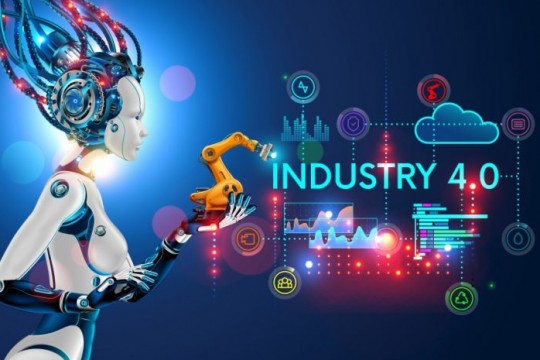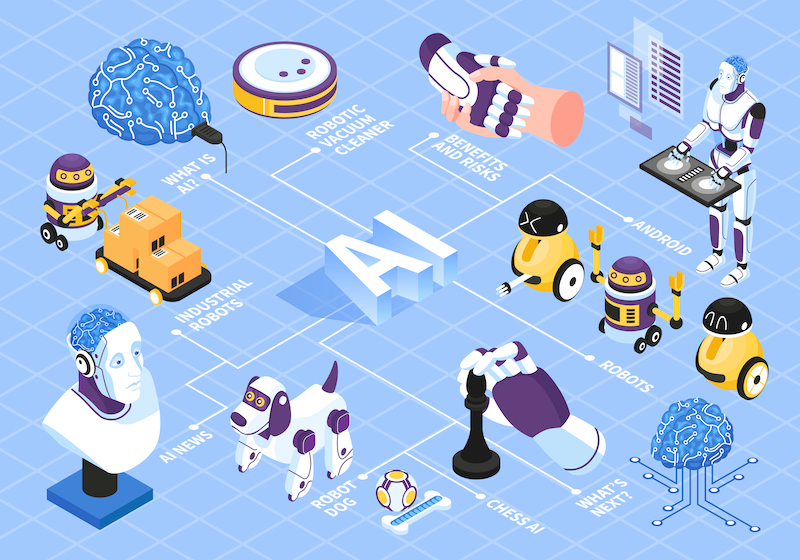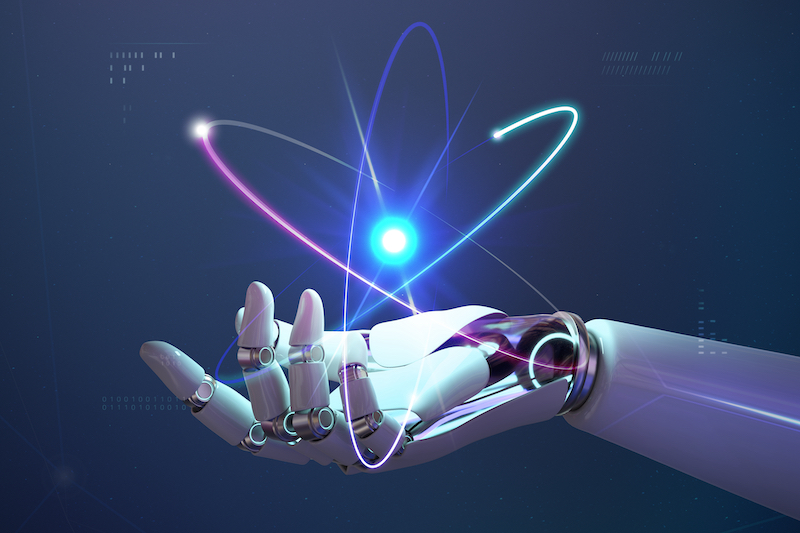Bài viết này có gì?
The application of 4.0 technology in businesses brings significant benefits in various aspects. Industry 4.0, a strategic initiative from Germany, aims to create smart factories where manufacturing technologies are upgraded and transformed by the Internet of Things (IoT), cloud computing, AI, and more.
In the era of Industry 4.0, humans and machines can communicate in real time. Industry 4.0 integrates embedded production systems with smart manufacturing processes, paving the way for a new technological era that will fundamentally transform industrial value chains, production value chains, and business models.

1. What is Industry 4.0?
Industry 4.0, also known as Manufacturing 4.0, is the integration of IT and manufacturing operations—the maturation of digital technology within the manufacturing sector. Mark Holleran, former CEO of Xplore Technologies, stated that it represents a “fundamental shift from centralized to decentralized manufacturing,” requiring adjustments in processes, business structures, and technologies.
“Technologies, including advanced robotics and artificial intelligence, sophisticated sensors, cloud computing, IoT, data collection and analysis, and digital fabrication… all are converging with this next industrial revolution,” Holleran told Business News Daily.
2. How is Industry 4.0 technology revolutionizing the manufacturing industry?
Dưới đây là bản dịch tiếng Anh cho nội dung bạn cung cấp:
Below are some key components that pave the way for the application of Industry 4.0 technology in businesses, explaining how they work to create a high-tech ecosystem consisting of smart devices to achieve an optimal and efficient workplace:
- Internet of Things (IoT)
Dưới đây là bản dịch tiếng Anh cho nội dung bạn cung cấp:
As the number of smart devices and the amount of data collected, analyzed, and stored increases, connectivity and communication will become even more critical. IoT will be able to provide a vast amount of data, offering manufacturers valuable information.
Both within the company and with third-party partners, businesses will need their data to be shareable and compatible to enable a higher level of operational efficiency. The application of IoT allows for virtual monitoring of capital assets, processes, resources, and products. This provides businesses with complete visibility, helping to streamline business processes and optimize supply and demand.”

- Artificial Intelligence (AI)
In the “Industry 4.0 revolution,” artificial intelligence is expected to be present in all areas of social life. For example, driverless trucks have been operating smoothly in mineral mines in Western Australia for several years. In the United States, Uber has tested its OTTO driverless trucks for interstate deliveries. The autopilot feature has been widely implemented in many car models from all major manufacturers.
In medicine, with the help of artificial intelligence, patients can use apps on their phones to take pictures and fill in information to send to an AI system, and almost instantly, the diagnosis and treatment options will be returned. A specific example of artificial intelligence has been shared by IBM experts.
3. Benefits of Applying Industry 4.0 Technology in Businesses
With such great promise and advanced technology, the application of Industry 4.0 in businesses requires a significant investment. According to a 2017 survey of 1,000 small and medium-sized manufacturers in Canada, for example, those adopting digital technologies invested an average of $250,000.
For larger companies, the costs are certainly higher. However, the expected payoffs—connectivity, smart devices, and automated production processes—promise a substantial return on investment, such as:
- Increased Productivity
Automation algorithms, analytics, and machine learning have taken much of the step-by-step work out of human hands. This means production is faster and more efficient, operating around the clock, with human labor primarily focused on monitoring and maintaining the systems.
- Increased Revenue and Profit
Industry 4.0 not only creates a more efficient and higher-quality production process but also enables predictive and preventative maintenance and upgrades, leading to reduced downtime and lower capital expenditures over time.
- Optimized Production Processes
With more connections, better data sharing and analysis, closer collaboration across the entire supply chain becomes feasible, which can lead to increased efficiency, optimization, and long-term innovation across the manufacturing sector. Integrated systems and communication between machines will drive greater collaboration among manufacturers, suppliers, and other stakeholders in the value chain.
- Seamless Record Keeping and Traceability
The collection and analysis of vast amounts of data also means better record storage and retrieval capabilities. This ranges from compliance with government regulations to customer satisfaction.
Conclusion:
In the context of Industry 4.0, smart manufacturing leverages advanced information and production technologies to achieve flexible, intelligent production processes that address a dynamic and global market.
Big data technology and artificial intelligence will optimize the entire production process, accurately predicting maintenance times to maximize cost savings and enhance the competitiveness of businesses.
The wave of applying Industry 4.0 technology in businesses will create impacts on both the supply and demand sides of products/services. This, in turn, will lead to the development of new technology platforms, gradually replacing the existing industrial structure.
Source: Compiled


